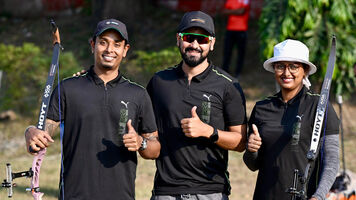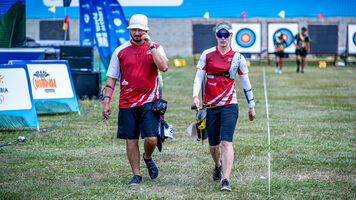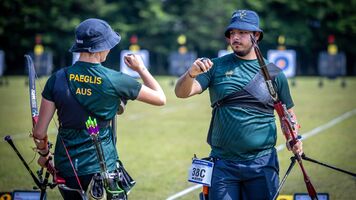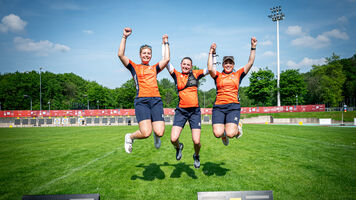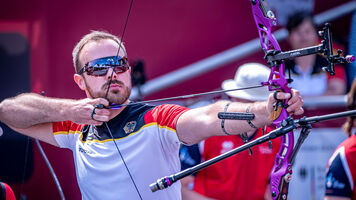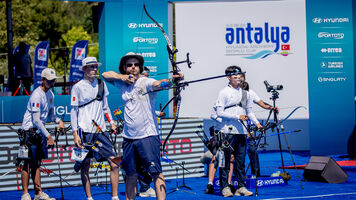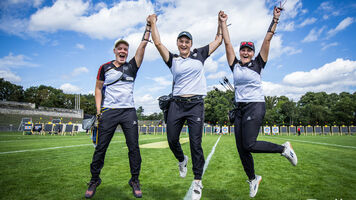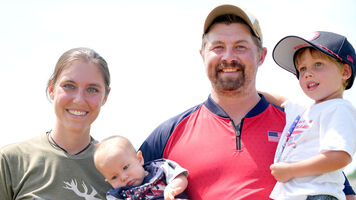Return on investment: Turkish team reaping rewards of shift in national squad management
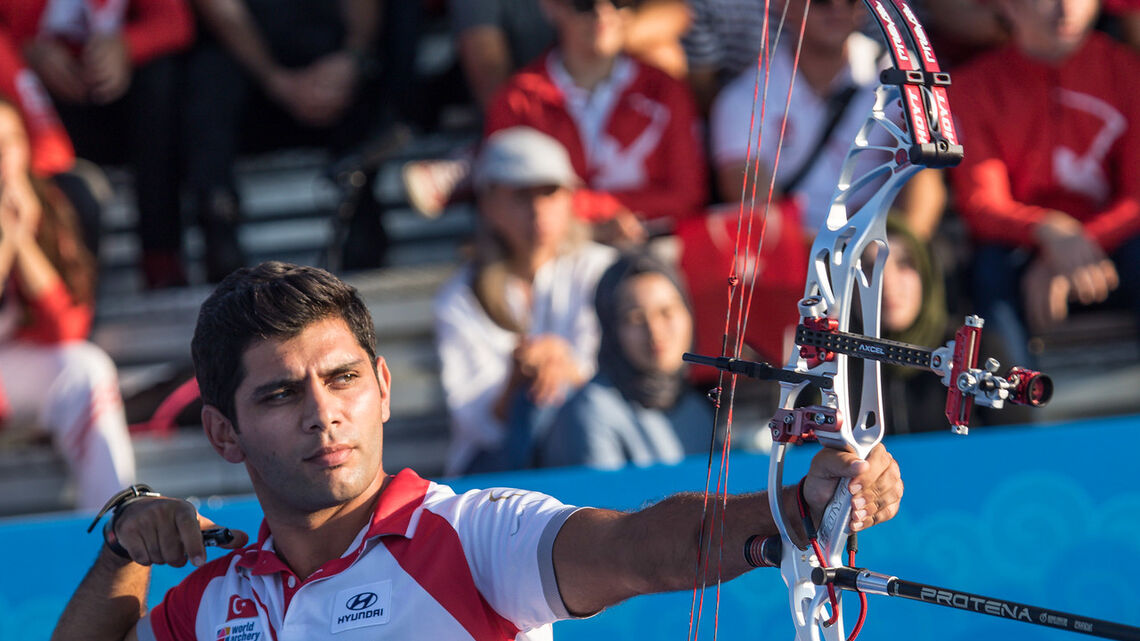
The host country of each year’s Hyundai Archery World Cup Final receives four automatic places for its athletes at the event, which is invitational for the best archers across the year.
In its 13-year history, no athlete representing the host country has ever won the competition.
But in 2018, things were almost very different. Turkey qualified two places by right when Yesim Bostan and Mete Gazoz each won a stage. Those were added to the allocated four spots, bringing the total number of Turkish archers in Samsun to six, and the team looked like very real challengers.
Neither Bostan nor Gazoz broke onto the podium but their compatriots looked strong.
Compound shooter Demir Elmaagacli, while a previous winner of the international tour in 2015, was probably not a tip for the title. But he made the final and shot brilliantly, only failing to get past a rock solid Kris Schaff in the gold medal match.
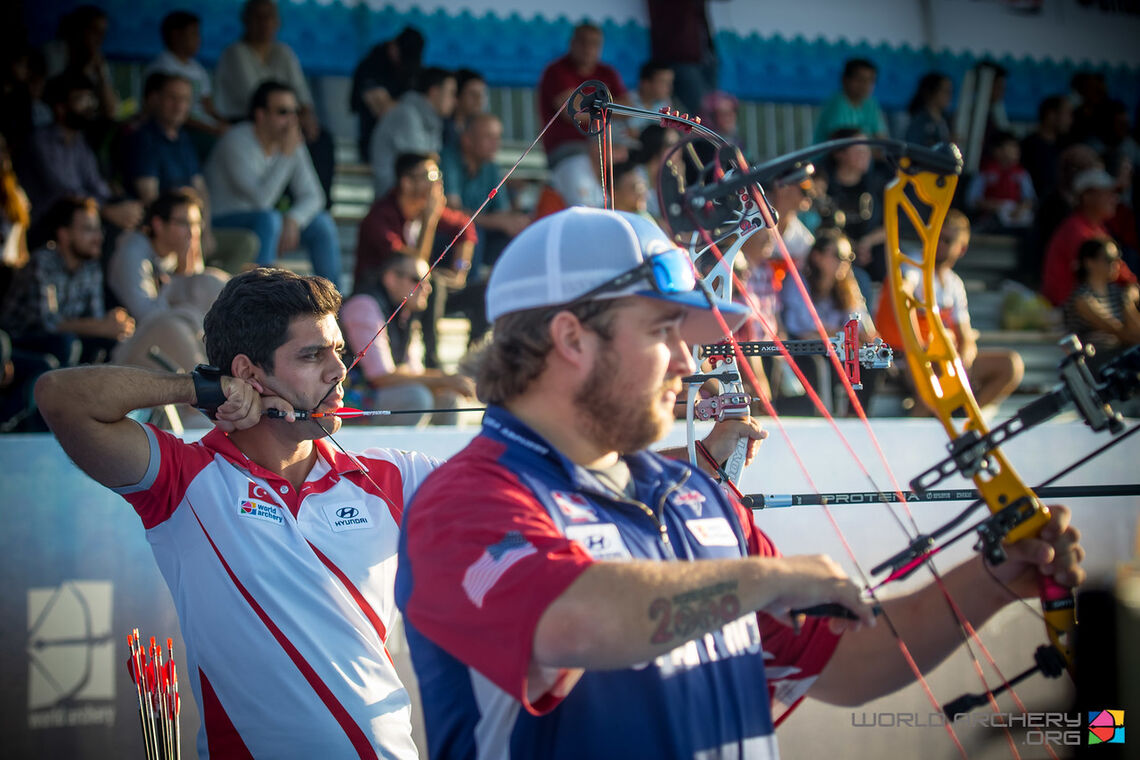
Yasemin Anagoz, who became European Champion by beating former worlds winner Maja Jager in Legnica, had her best year yet in 2018.
It’s fair to say, though, that nobody expected the incredible run she made in Samsun: beating, to deafening applause, Olympic Champion Chang Hye Jin and then multiple Hyundai Archery World Cup medallist Deepika Kumari – all while showing remarkable consistency and composure on the big stage.
She couldn’t quite find the last gear in her final against Lee Eun Gyeong, but still took four points off the young Korean wunderkind for a well-deserved silver.
Samsun was an appropriate place to hold the Hyundai Archery World Cup Final, after a year in which the Turkish team fully stepped up to an elite level.
The country has long been a base for World Archery events with the circuit stage in Antalya a consistent, and popular, anchor on the calendar.
There’s not always been the on-field performance to match the regularity of event hosting. But the recent rise of the national side has not been by accident – and there has been a serious investment in the top athletes.
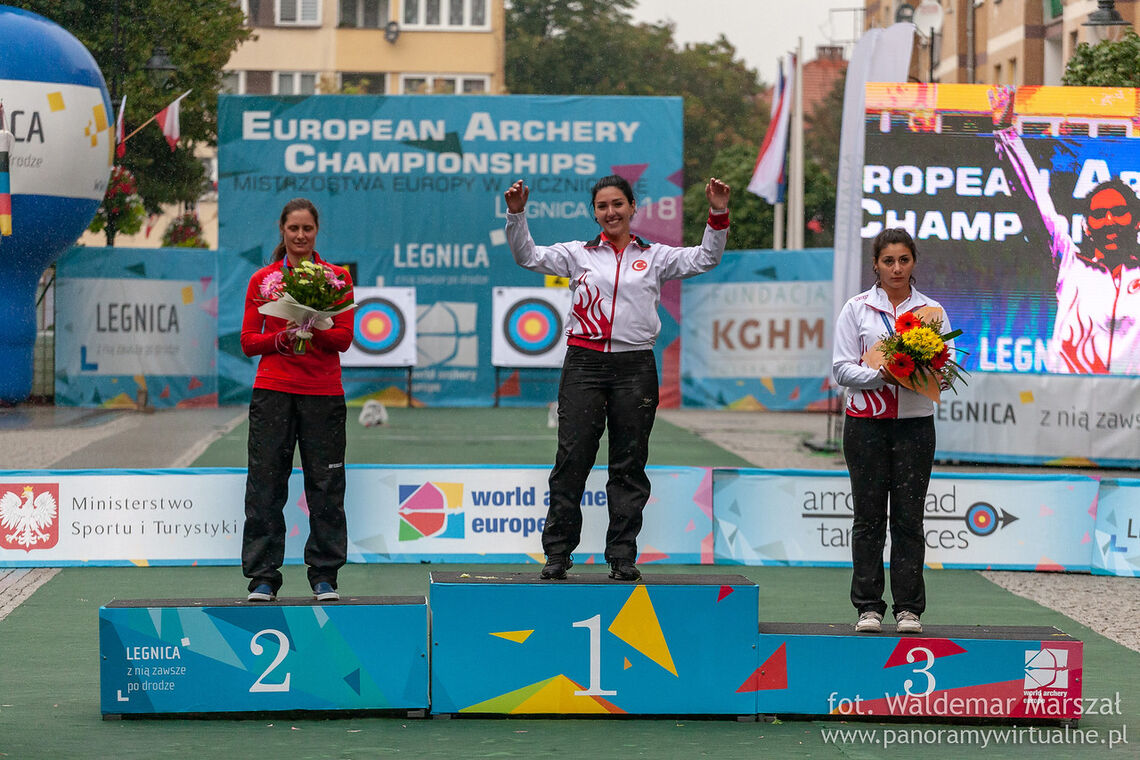
Gazoz and Anagoz, both Olympians in Rio, are based in Antalya as long as they train all day, every day, and win events – a side of the bargain that in 2018, they definitely held up.
“The winning didn’t start this year,” said national team coach Goktug Ergin. “It started way back in 2013, and after five years, finally we find some results.”
“We knew last year that things were going well and finally this year we took the medals to prove it.”
The two recurves that are the present and future of Turkish archery started working with the squad at the age of 14, five years ago.
“Before that, we just had training camps for a few days before big competitions,” explained Goktug. “We changed to a more residential system, where we have two 14-day training camps a month, with four days break between each one.”
There’s also been a wider focus on not only technique but on core training and physical conditioning, too.
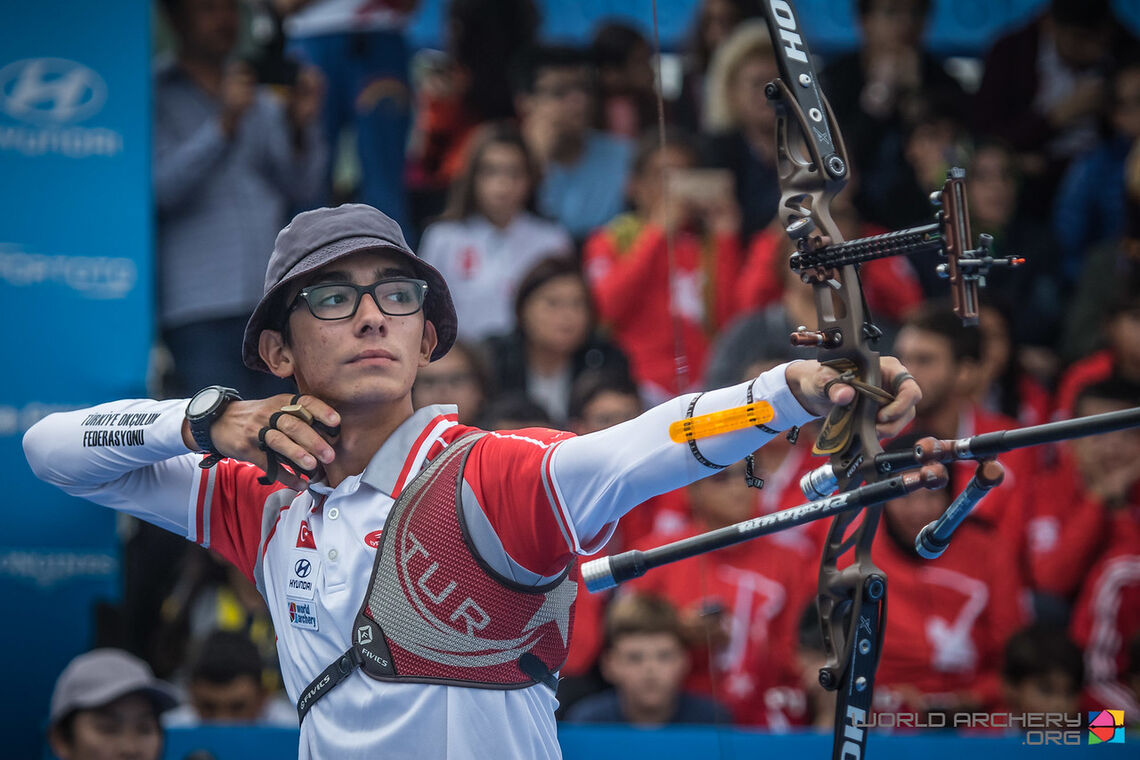
“Previously in Turkey, the common idea was to shoot 200 arrows per day. Now, we shoot 650 or 700 each day,” the coach said.
“We also try and bring good teams to Turkey to train with our archers and try to sync up international training camps to give our archers maximum experience before major competitions. This makes a big difference.”
A day at a Turkish training camp is 10 hours long, including eight hours of shooting and two in the gym.
“It can be long and boring,” said Anagoz. “But if there is a reason why we are winning, it’s that.”
The archery team is based in Antalya and there is also a facility in Samsun with a 70-metre indoor hall that the squad uses in December to January.
None of this would be possible without an increase in funding.
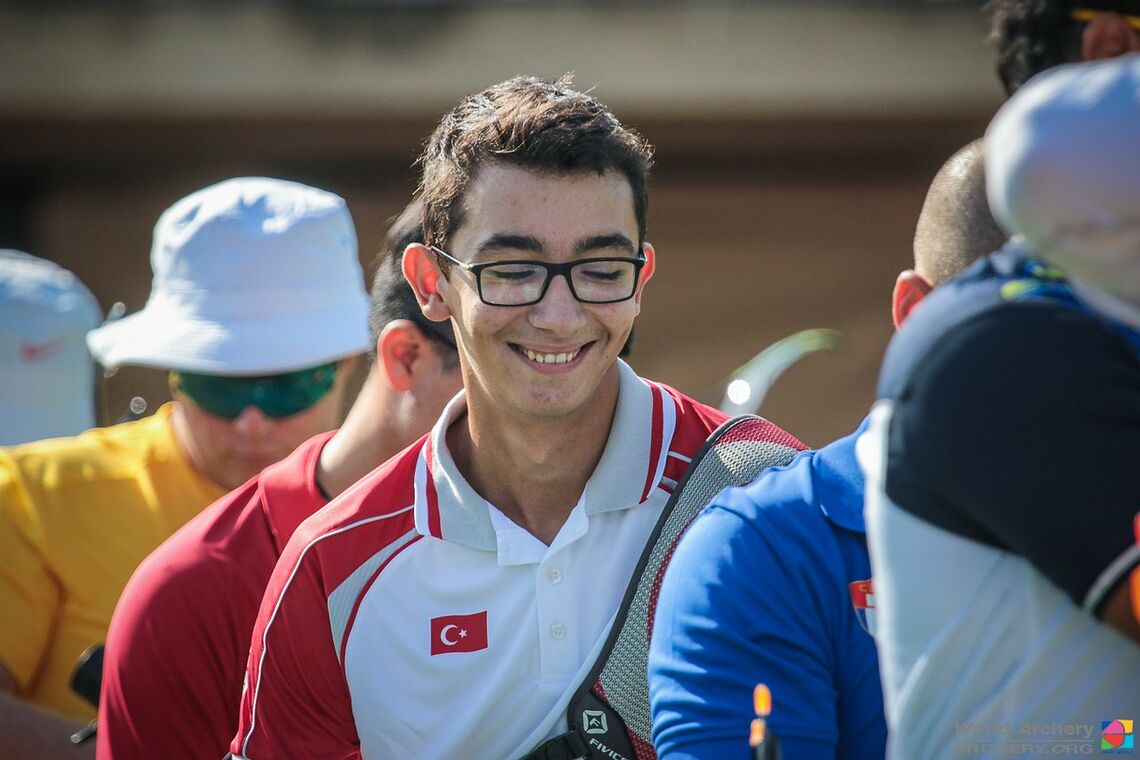
“We were lucky in 2016 to get the two quota places for Rio with two really inexperienced archers. Since then, they’ve started to really believe in us and we’ve had a lot more money for the programme. It’s made a big difference,“ said Gotkug.
The future looks bright.
“We had two cadet archers at the Youth Olympic Games [in Buenos Aires], the male is particularly good and scoring in the 660s. He’s only 14, but he is growing like Mete now. The most important thing is that we have three cadet men and three cadet women for the future,” he added.
There’s no doubt about the goal ahead, either.
Turkish archery federation president Abdullah Topaloglu said in the month before Samsun: “We believe that Turkey will win its first Olympic archery medal in Tokyo.”
On the current evidence, that’s looking entirely possible.
The Turkish Archery Federation is the national governing body for archery in Turkey.


